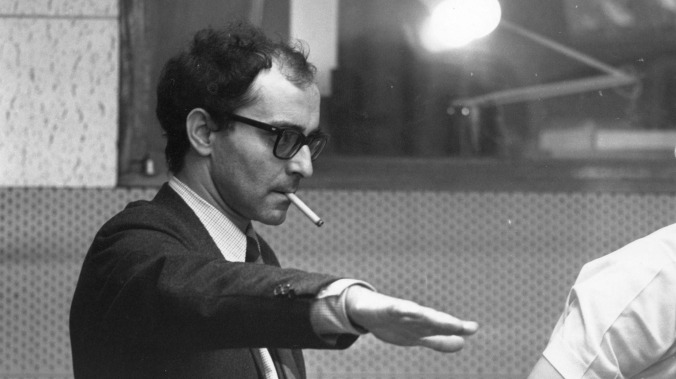Born in 1930, Godard was a film critic whose body of work as a writer and director would later be called by Filmmaker Magazine “arguably the most influential in the history of cinema.” This was not merely because he worked steadily from the mid-1950s until close to his death, but he also changed the form of filmmaking itself, examining and deconstructing the form and language of the medium in transgressive and irreversible ways. As a writer for the French film magazine Cahiers du Cinéma, he helped advance auteur theory with his writing about the work of Orson Welles, Vittorio De Sica, and Howard Hawks, whom he called “the greatest American artist.” He would within a few years join their ranks with his 1960 film Breathless, which not only generated international fame but offered the visual storytelling medium the “jump cut,” which not only he but filmmakers everywhere would come to use as part of their creative arsenal.
Even as Godard borrowed from the luminaries he revered, he reinvented their influence to tell stories that were at once steeped in genre convention and deeply personal. This paved the way for filmmaking not as an establishment platform but one for youth as a culture—perhaps not unlike The Velvet Underground’s first album, Breathless was the movie that made thousands of young people want to make films. At the same time he cultivated an almost mythic persona, he rarely granted interviews, and when he did they were filled with misdirection or cryptic revelations.
He did not spare his film critic’s acerbic reactions to the work of others that he did not like, condemning celebrated films like Steven Spielberg’s Schindler’s List as “phony.” And yet he was revered by generations of filmmakers, not simply in examples like providing the inspiration for Quentin Tarantino’s longtime production company (A Band Apart Films), but by spouting dictums adopted thousands of times over as a rallying cry for the creatively flush but cash deficient: “All you need to make a movie is a girl and a gun.”
His last feature-length film, Le Livre ‘image, was released in 2018, after more than 70 years as a director. Godard’s work has been written about at least as much as he has shaped the form of filmmaking itself, but even in his absence, he remains an icon whose work challenges viewers as much as it exhilarates, and will continue to unearth new truths about the medium, its audience, and himself for decades to come.


 Keep scrolling for more great stories.
Keep scrolling for more great stories.